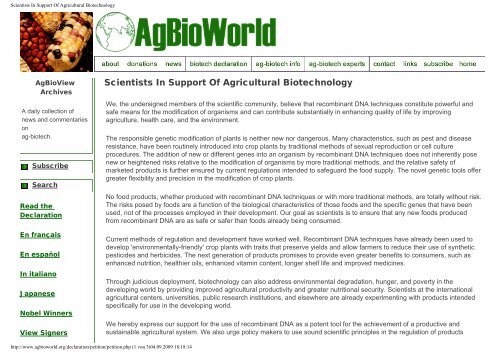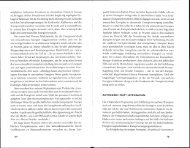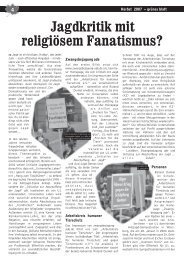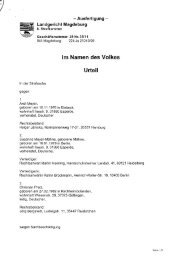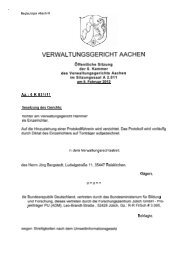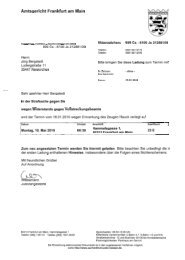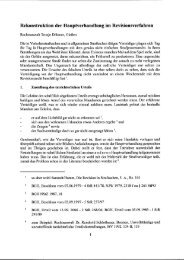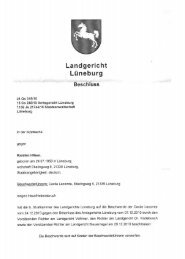Fußnoten und weiteren Quellen - Projektwerkstatt
Fußnoten und weiteren Quellen - Projektwerkstatt
Fußnoten und weiteren Quellen - Projektwerkstatt
Sie wollen auch ein ePaper? Erhöhen Sie die Reichweite Ihrer Titel.
YUMPU macht aus Druck-PDFs automatisch weboptimierte ePaper, die Google liebt.
Scientists In Support Of Agricultural Biotechnology<br />
AgBioView<br />
Archives<br />
A daily collection of<br />
news and commentaries<br />
on<br />
ag-biotech.<br />
Subscribe<br />
Search<br />
Read the<br />
Declaration<br />
En français<br />
En español<br />
In italiano<br />
Japanese<br />
Nobel Winners<br />
View Signers<br />
http://www.agbioworld.org/declaration/petition/petition.php (1 von 3)04.09.2009 18:18:14<br />
Scientists In Support Of Agricultural Biotechnology<br />
We, the <strong>und</strong>ersigned members of the scientific community, believe that recombinant DNA techniques constitute powerful and<br />
safe means for the modification of organisms and can contribute substantially in enhancing quality of life by improving<br />
agriculture, health care, and the environment.<br />
The responsible genetic modification of plants is neither new nor dangerous. Many characteristics, such as pest and disease<br />
resistance, have been routinely introduced into crop plants by traditional methods of sexual reproduction or cell culture<br />
procedures. The addition of new or different genes into an organism by recombinant DNA techniques does not inherently pose<br />
new or heightened risks relative to the modification of organisms by more traditional methods, and the relative safety of<br />
marketed products is further ensured by current regulations intended to safeguard the food supply. The novel genetic tools offer<br />
greater flexibility and precision in the modification of crop plants.<br />
No food products, whether produced with recombinant DNA techniques or with more traditional methods, are totally without risk.<br />
The risks posed by foods are a function of the biological characteristics of those foods and the specific genes that have been<br />
used, not of the processes employed in their development. Our goal as scientists is to ensure that any new foods produced<br />
from recombinant DNA are as safe or safer than foods already being consumed.<br />
Current methods of regulation and development have worked well. Recombinant DNA techniques have already been used to<br />
develop 'environmentally-friendly' crop plants with traits that preserve yields and allow farmers to reduce their use of synthetic<br />
pesticides and herbicides. The next generation of products promises to provide even greater benefits to consumers, such as<br />
enhanced nutrition, healthier oils, enhanced vitamin content, longer shelf life and improved medicines.<br />
Through judicious deployment, biotechnology can also address environmental degradation, hunger, and poverty in the<br />
developing world by providing improved agricultural productivity and greater nutritional security. Scientists at the international<br />
agricultural centers, universities, public research institutions, and elsewhere are already experimenting with products intended<br />
specifically for use in the developing world.<br />
We hereby express our support for the use of recombinant DNA as a potent tool for the achievement of a productive and<br />
sustainable agricultural system. We also urge policy makers to use so<strong>und</strong> scientific principles in the regulation of products


